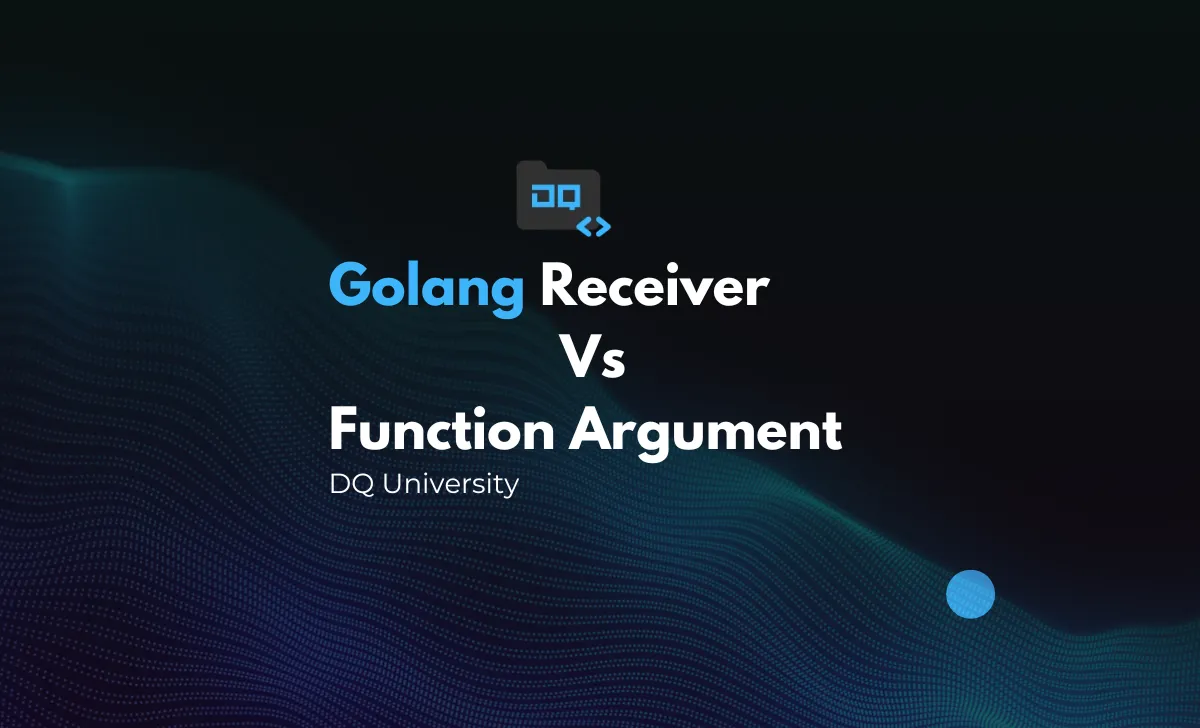In the Golang programming language, understanding the nuances between receivers and function arguments is crucial for crafting clean and efficient code. Let’s delve into the intricacies of “Golang receiver vs function argument” to gain insights into their distinct roles and applications.
What’s Inside
Understanding Golang Receivers
Golang receivers, also known as method receivers, are parameters associated with methods and functions tied to specific types. These receivers are pivotal in defining methods that operate on user-defined types.
Syntax
// Receiver method
func (r ReceiverType) MethodName() {
// Method implementation
}
Use Cases
- Encapsulating functionality specific to a type
- Enhancing code readability and organization
- Enabling method chaining
Function Arguments in Golang
Function arguments are parameters passed to a function, allowing it to receive external data and perform operations on that data.
Syntax
// Function with arguments
func FunctionName(arg1 Type1, arg2 Type2) ReturnType {
// Function implementation
}
Use Cases
- Handling external data within a function
- Encouraging code reusability
- Supporting various input scenarios
Golang Receiver vs Function Argument: Key Differences
Now, let’s explore the key distinctions between Golang receivers and function arguments:
Association with Types:
- Receivers are associated with types, tying methods to specific structures.
- Function arguments are more general and can be applied to functions that are not tied to specific types.
Encapsulation:
- Receivers promote encapsulation by allowing methods to operate on the internal state of a type.
- Function arguments operate on external data, which may not have the same encapsulation benefits.
Code Organization:
- Receivers contribute to a more structured and organized codebase, especially in the context of user-defined types.
- Function arguments provide flexibility but might lead to less cohesive code in certain scenarios.
Best Practices and When to Use Each
Use Receivers When:
- Methods are closely related to a specific type.
- Encapsulation of functionality is crucial.
- Improved code organization is desired.
Use Function Arguments When:
- Flexibility is needed to operate on various types or scenarios.
- Code reusability is a priority.
- There is no clear association with a particular type.
Final Thought
In conclusion, the “Golang receiver vs function argument” debate brings to light the choices developers face in crafting efficient and maintainable Go code. By understanding the distinct purposes of receivers and function arguments, you can make informed decisions based on the specific requirements of your projects.
As you embark on your Golang journey, experimenting with these concepts will lead to a deeper comprehension of their optimal applications in various scenarios.
Happy coding in Golang!
Frequently Asked Questions
What is the primary difference between a Golang receiver and a function argument?
The main distinction lies in their association and purpose. A Golang receiver is associated with methods tied to specific types, promoting encapsulation and code organization. On the other hand, function arguments are more general parameters passed to functions, allowing them to operate on external data.
Can a function have both receivers and function arguments?
Yes, a function can have both receivers and function arguments. Receivers are specific to methods associated with a type, while function arguments are parameters passed to the function. Combining them allows you to leverage the benefits of encapsulation and code organization offered by receivers, along with the flexibility of handling external data through function arguments.
You May Also Like:

